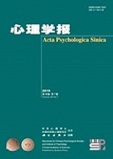|
|
A STUDY OF THE CREATIVE PROCESS OF TECHNICAL INNOVATION IN MACHINE WORK
(Division of Industrial Psychology, Institute of Psychology, Academic Sinica)
1960, 4 (03):
50-63.
The process of creative thinking of innovators was studied by means of summarizing their experiences and controlled experiments in some machine shops. The results indicate that classification of the problems of innovation into appropriate categories may facilitate the process of problem solving. In the course of new tool construction, one of the most important principles for problem solving is to find out the relations between the centers (or axes) of parts and tools. The knowledge of geometry is necessary for the development of creative thinking for workers, this branch of science should be properly enforced in technical schools.If the object of innovation is complex in structure and the relations between space and time in its operation is complicated, a solid model used as prototype is favorable for the worker's imagination. Authors also discussed the influence of the geometrical form of the parts upon the perception and thinking of the innovator, the function of prototype, types of creative' thinking, etc. In the course of creative activity, the innovator's cognition of the relations between the object and the tool to be constructed become more and more complete as the creative work goes on. Only under certain conditions would prototype show its effective result.
Related Articles |
Metrics
|




